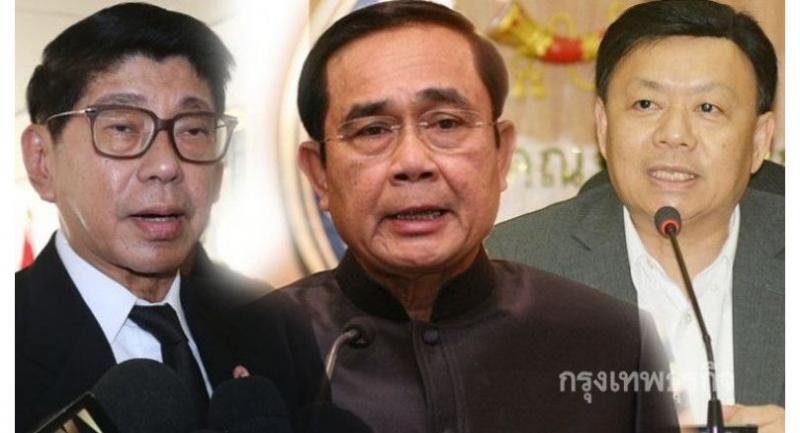Junta’s rejection of broadcaster appeal defended

The National Council for Peace and Order (NCPO) on Tuesday declined to invoke its special powers under Article 44 of the constitution to ease the financial burden born by terrestrial digital TV licence holders and two holders of 900MHz licences.
Takorn Tantasith, secretary-general of the National Broadcasting and Telecommunications Commission (NBTC), revealed the decision following a meeting with the junta.
He said the NCPO was worried it would be accused of showing undue favour to the private operators if it granted relief measures as requested.
Deputy Prime Minister Wissanu Krea-ngam told the NBTC to present further justification in writing for the junta to approve relief measures.
The digital TV licence holders had asked the government to ease their financial woes by granting a three-year grace period in paying the remaining instalments of their upfront licence fees and by halving their terrestrial broadcasting network rental fees for two years.
Advanced Wireless Network (AWN) and TrueMove H Universal Communication, both of which hold NBTC 900MHz licences, had asked the junta to let them split their fourth and final instalment payments on the spectrum auction upfront fees into five tranches.
AWN and TrueMove H are each required to pay the final instalment payments of around Bt60 billion in 2019.
Thailand Development and Research Institute president Somkiat Tangkitvanit said recently neither the government nor the NBTC should be held responsible for losses incurred by the licence holders as a result of a glut of available channels and viewers shifting to alternative technical platforms.
He said both factors causing the losses were part of the normal business risk the broadcasters should have been aware of from Day 1.
The broadcasters have complained that the NBTC failed to ensure the industry’s smooth transition from analog to digital transmission.
Somkiat said that, unlike the case of digital TV operators, it was not clear what the government or NBTC did wrong to cause financial difficulties for AWN and True.
And, unlike to the broadcasting industry, the shift to alternation platforms did not severely impact the telecom industry, he said.
Somkiat said such disruption might diminish telecom operators’ voice service revenues, but they earned more from wireless data services in compensation.
A stock analyst, who declined to be named, said on Tuesday that he had disagreed from the very start with the notion of the government being asked to step in to ease the financial burden on the broadcasters and telecom operators.
Before taking part in the NBTC digital-TV licence auction in 2013, the bidders should have realised there would be intense competition in the industry as they knew that the regulator would be auctioning as many as 24 licences, he said.
He added that the best solution was to let the market mechanism take its course, which would see many broadcasters dropping out of the market, which would then enter a state of equilibrium with an appropriate number of operators having survived the initial period of intense competition.
